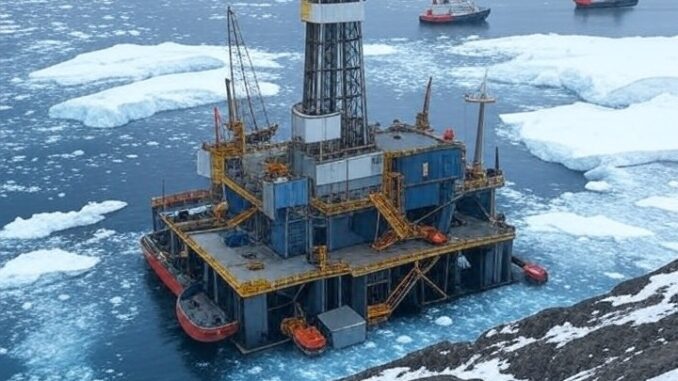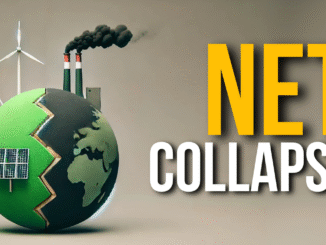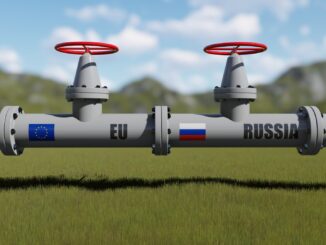
In a revelation that has sent shockwaves through the global energy sector and international diplomacy, Russian seismic surveys have uncovered potential oil and gas reserves estimated at a staggering 511 billion barrels in the icy depths of Antarctica. This figure dwarfs Saudi Arabia’s proven reserves by nearly double and exceeds the North Sea’s total output over the past half-century by more than tenfold.
Located primarily in the Weddell Sea—an area claimed by the United Kingdom but also contested by Argentina and Chile—this discovery challenges the long-standing principles of the Antarctic Treaty, which has preserved the continent as a zone of peace, science, and environmental protection since 1959. As geopolitical tensions simmer, particularly amid Russia’s ongoing conflict in Ukraine, this find raises profound questions about the future of Antarctica’s “era of peaceful use” and whether it could inadvertently pave the way for de-escalation in Eastern Europe through renewed energy partnerships.
Are you Paying High Taxes in New Jersey, New York, or California?
The Discovery: Seismic Surveys Unearth Vast Potential Reserves
The claims stem from expeditions conducted by Russian research vessels, notably the Alexander Karpinsky, operated by Rosgeo, Russia’s state geological exploration company. These surveys, described officially as scientific endeavors, involved seismic mapping of the Antarctic seabed.
Over multiple trips, including recent ones docking in Cape Town, South Africa, the data revealed hydrocarbon deposits equivalent to 511 billion barrels of oil equivalent—encompassing both crude oil and natural gas.
While the primary focus has been on oil, reports confirm the presence of substantial natural gas reserves as well, making this one of the largest untapped hydrocarbon basins on Earth.
However, it’s crucial to note that these are not “proven reserves” in the traditional sense. No drilling has occurred—nor is it permitted—due to the Antarctic Treaty’s prohibitions. Instead, the estimates are derived from geophysical data, which, while promising, remain speculative without exploratory wells.
Critics, including UK geopolitics expert Professor Klaus Dodds, argue that Russia’s activities blur the line between genuine research and covert prospecting for commercial exploitation.
Dodds testified before the UK House of Commons Environment Audit Committee that such surveys could be “a precursor for forthcoming resource extraction,” undermining the spirit of international cooperation.
Russian officials have repeatedly assured the Antarctic Treaty Consultative Meeting that their work is purely scientific, aligning with treaty obligations.
Yet, skepticism abounds, especially given Rosgeo’s mandate to identify mineral resources for economic gain. If verified, this cache could reshape global energy dynamics, providing Russia with leverage in a world increasingly focused on energy security amid climate transitions.
The Antarctic Treaty: A Fragile Shield Against Exploitation
At the heart of this controversy is the Antarctic Treaty System, established in 1959 during the Cold War to demilitarize the continent and dedicate it to peaceful purposes. Signed initially by 12 nations—including the US, USSR (now Russia), and UK—the treaty now boasts 56 signatories and prohibits “any measures of a military nature” while ensuring freedom for scientific investigation.
The 1991 Protocol on Environmental Protection to the Antarctic Treaty (often called the Madrid Protocol) explicitly bans all mineral resource activities, including oil and gas extraction, except for scientific research.
This indefinite moratorium can be reviewed after 2048, but only with the consensus of three-quarters of consultative parties, making unilateral action highly unlikely.
The treaty freezes territorial claims, allowing overlapping assertions (like those from the UK, Argentina, and Chile) without resolution, to prevent conflict.
Russia’s surveys test these boundaries. While seismic work is allowed for science, its potential dual-use for resource mapping has alarmed observers.
Geopolitical strains, exacerbated by Russia’s 2022 invasion of Ukraine, have led experts like Dodds to warn of “strategic competition” spilling into Antarctica.
China, another non-claimant with growing Antarctic presence, has joined Russia in blocking marine protected areas, further straining the treaty’s framework.
Environmentalists fear that pursuing these reserves could accelerate climate change, as melting ice—already making the region more accessible—would be compounded by industrial activity.
Antarctica’s role in global sea-level regulation and biodiversity makes any disruption a planetary risk.
Geopolitical Ripples: Could Antarctic Oil Hasten the End of the Ukraine War?
Beyond the ice, this discovery intersects with Russia’s broader energy strategy and the Ukraine conflict. Facing Western sanctions that have hampered its oil and gas sector, Russia has signaled openness to renewed partnerships with US firms—a potential olive branch in peace negotiations.Just before a high-profile summit in Alaska with US President Donald Trump in August 2025, Russian President Vladimir Putin signed a decree allowing foreign investors, including ExxonMobil, to reclaim stakes in the Sakhalin-1 oil and gas project.
Exxon, which exited Russia in 2022 amid the Ukraine invasion, incurring a $4.6 billion loss, has engaged in backchannel talks with Rosneft about returning.
These discussions, tied to broader US-Russia energy deals, were reportedly part of Ukraine peace talks.
Putin’s move echoes pre-war sentiments: In the lead-up to the conflict, he emphasized joint ventures with Western majors like Exxon for advanced drilling technology, which Russia lacks due to sanctions.
If the Antarctic find amplifies Russia’s resource allure, it could incentivize Putin to prioritize economic recovery over military gains. By dangling access to vast reserves—potentially including Antarctic data or future rights—Russia might leverage energy diplomacy to lift sanctions, attract investment, and de-escalate in Ukraine.
Analysts suggest this could mark a pivot: Rather than isolated aggression, Russia might seek reintegration into global markets, using projects like Sakhalin as test cases.
However, any Antarctic exploitation would require treaty amendments, risking international backlash and further isolating Moscow.
Conclusion: A Frozen Frontier at a Crossroads
Russia’s Antarctic revelation underscores the tension between energy needs, environmental imperatives, and geopolitical realities. While the 511 billion barrels (and accompanying natural gas) represent a colossal opportunity, the Antarctic Treaty’s bans stand as a bulwark against exploitation—for now.
As climate change thaws the continent, the pressure to tap these resources will intensify, testing global resolve.
In the context of Ukraine, this could paradoxically foster peace if Putin opts for drilling partnerships over conflict. Yet, without robust enforcement, Antarctica’s era of peaceful use may thaw faster than its ice sheets. The world watches as the frozen south becomes a hotbed of contention.
Avoid Paying Taxes in 2025
Crude Oil, LNG, Jet Fuel price quote
ENB Top News
ENB
Energy Dashboard
ENB Podcast
ENB Substack






